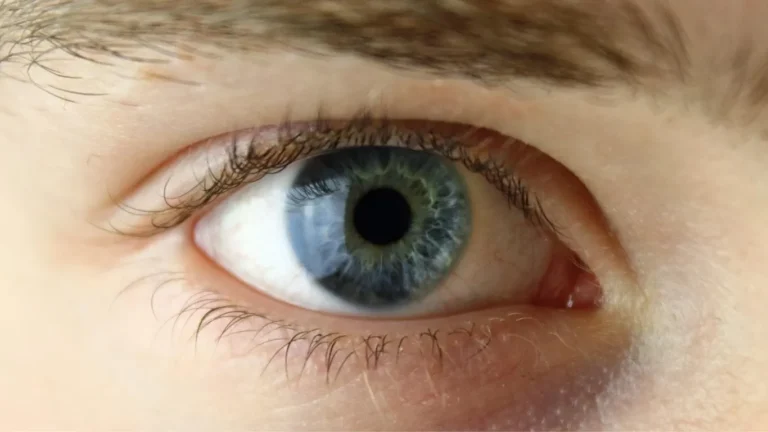Can Asthma Cause Constant Coughing at Night? Stop Losing Sleep Now
If you’re lying awake at night, hacking away while your partner gives you the side-eye, you’re not alone—and you’re probably wondering, can asthma cause constant coughing at night? As a pulmonary nurse practitioner who’s seen more inhalers than I can count, I can tell you: it absolutely can. In fact, nighttime coughing is one of the most overlooked signs of poorly controlled asthma. But why does it hit hardest just when your body’s supposed to be resting? Let’s break it down, real-talk style.
What’s Going On in Your Lungs at Night?

Your Airways Don’t Clock Out
Just because you’re trying to sleep doesn’t mean your airways are taking the night off. In fact, they can get even more irritable at night. As someone who’s cared for countless asthma patients, I’ve seen this firsthand—coughing flares up during sleep when the airways naturally narrow and mucus production increases. Toss in some allergens or dry air and boom, it’s a cough-fest until sunrise.
The Role of Circadian Rhythms
Here’s a fun (well, not so fun) fact: our bodies follow a 24-hour internal clock called a circadian rhythm. This impacts everything, including lung function. Research—and I’ve seen this reflected in my patients too—shows that lung function tends to dip in the early morning hours. So if you’re waking up at 2 AM hacking away, it’s not your imagination. It’s biology being rude.
Why Asthma and Nighttime Coughing Often Go Hand in Hand

Inflammation Loves the Night
Let me paint a picture. Your airways are inflamed (asthma 101), and at night, you’re lying flat, maybe surrounded by dust mites or pet dander, and the air is drier. That combo? A recipe for a constant nighttime cough. As a provider, I’ve worked with many folks who only experienced symptoms at night and didn’t even know they had asthma until we ran a few tests.
Common Triggers Lurking in the Bedroom
- Dust mites in your pillows and mattress
- Pet dander (even if Fluffy isn’t allowed in the bed)
- Cold, dry air from open windows or AC
- Residual smoke or perfumes
- Even mold spores hiding behind walls
I’ve had patients do a deep clean of their bedroom and suddenly their cough improves by 80%. It’s wild how much our environment can impact our lungs.
Can Asthma Cause Constant Coughing at Night? Let’s Talk About Cough-Variant Asthma

It’s Asthma, Just in Disguise
If your cough is the main (or only) symptom, you might have what we call cough-variant asthma. It’s sneaky. You won’t necessarily feel wheezy or tight-chested. You’ll just cough… and cough… and cough. Often worse at night, or after exercise. I once treated a teacher who thought she had reflux or allergies for years—it turned out to be this form of asthma all along.
What It Feels Like, According to My Patients
Here’s what some of my patients have told me:
- “It’s like a dry tickle in my throat that won’t go away.”
- “I can’t sleep. As soon as I lie down, I start coughing.”
- “It’s not productive—it just keeps me up all night.”
If this sounds familiar, talk to a specialist. Cough-variant asthma responds well to inhaled corticosteroids, but you need the right diagnosis first.
How to Tell If It’s Asthma or Something Else
Not every nighttime cough equals asthma. As a practitioner, I look at patterns. Is the cough:
- Worse at night or early morning?
- Triggered by cold air, laughter, or exercise?
- Accompanied by wheezing, even faint?
If you’re saying “yes” to those, asthma might be behind it. Of course, things like post-nasal drip, GERD, or even sleep apnea can mimic asthma too—so a full workup is key.
How Poor Asthma Control Turns Nights Into a Coughing Marathon

The Silent Red Flags of Poor Asthma Management
Here’s something I wish more people knew: if you’re waking up coughing multiple nights a week, your asthma isn’t as under control as you think. I’ve had patients proudly say, “Oh, I only need my rescue inhaler once a day!”—but then they admit to nightly coughing. That’s not okay. Asthma should be practically invisible when it’s managed right.
Nighttime coughing is a clinical red flag. It’s your body’s way of waving a little flare gun, saying, “Hey, I need better control here!” And trust me, I’ve seen patients go from dragging through their days after sleepless nights to feeling like themselves again just by tweaking their treatment plan.
Are You Tracking Your Symptoms—or Just Guessing?
So many folks “guesstimate” their asthma control, but a symptom diary can be a game changer. I always recommend jotting down:
- What time the coughing happens
- What seems to trigger it (e.g., cold air, laying flat, your cat curling up next to you)
- How often you’re using your rescue inhaler
- Any other symptoms like wheezing, shortness of breath, or chest tightness
This info helps providers like me pinpoint whether we’re dealing with uncontrolled asthma, a poor medication response, or maybe even a misdiagnosis.
Addressing Environmental Triggers: Clean Air, Better Sleep

Bedroom Makeover 101
Okay, let’s talk bedrooms. You spend about a third of your life in there (unless you’re a shift worker like I used to be—then, who knows). If your room is full of triggers, your lungs are on the struggle bus before you even realize it. Here’s what I tell my patients:
- Use allergen-proof mattress and pillow covers. These help reduce dust mite exposure big time.
- Keep pets out of the bedroom. I know, I know—this one hurts. But even if Fluffy isn’t allowed in the bed, dander lingers on clothes, carpets, curtains… you name it.
- Run a HEPA air purifier. Especially helpful during allergy season or if you’re sensitive to mold or dust.
- Maintain humidity between 30–50%. Too dry? Your airways dry out and irritate. Too moist? Mold party. Balance is key.
Let’s Not Forget Seasonal Triggers
One thing that often surprises people is how much seasonal shifts can mess with asthma. Pollen in spring? Brutal. Cold dry air in winter? Forget about it. If your nighttime cough gets worse with the seasons, it could be a sign that allergic asthma or environmental sensitivities are playing a bigger role than you thought.
Medications: Why That Inhaler Alone Might Not Cut It

It’s Not Just About Quick Relief
I can’t count how many times I’ve had this conversation:
Patient: “But I use my blue inhaler every time I cough at night and it helps!”
Me: “Exactly. That means we need to talk about your controller meds.”
Rescue inhalers (like albuterol) are meant for short-term relief. If you’re reaching for it more than twice a week—or waking up with coughing fits—your asthma probably needs a controller, like an inhaled corticosteroid. These reduce the underlying inflammation, not just the symptoms.
When We Add or Adjust Meds
Depending on your symptoms, here’s what might happen during a visit:
- Add a low-to-medium dose inhaled steroid if you’re not on one yet
- Consider a combo inhaler (steroid + long-acting bronchodilator)
- Discuss leukotriene modifiers if you also have allergies
- Schedule spirometry to reassess lung function
I’ve seen patients’ nighttime coughing disappear within weeks after optimizing their meds. It’s always satisfying to hear, “I finally slept through the night.”
Pro Tip: Timing Your Medications
One trick I often share is to take your controller inhaler in the late afternoon or early evening, especially if nights are rough. It ensures levels are peaking right when your lungs are most likely to start acting up. Of course, follow your provider’s advice, but this little timing tweak has worked wonders for some of my chronic nighttime coughers.
Daily Habits That Can Calm the Nighttime Asthma Cough

Small Changes, Big Impact
Let’s be real—managing asthma isn’t just about meds. Your daily habits, routines, and even what you eat or breathe can have a ripple effect. I’ve had patients dramatically reduce their constant coughing at night from asthma just by changing a few key things.
Here are some lifestyle tweaks I’ve seen work wonders:
- Rinse your sinuses before bed. Saline sprays or rinses help clear allergens and reduce post-nasal drip, which can aggravate asthma.
- Do a pre-bedtime bronchodilator if prescribed. For some, a puff before sleep keeps the airways calmer overnight.
- Elevate your head with extra pillows. Especially if GERD is involved. That acid splash can trigger airway spasms.
- Quit smoking or avoid secondhand smoke completely. I know this one’s obvious, but it’s probably the biggest game-changer I’ve seen in my career.
How Stress Ties Into This
Let me tell you, stress can be sneaky. Cortisol, adrenaline, and all those fun fight-or-flight chemicals make your asthma worse. I once had a college student patient whose nighttime coughing flared up during finals week—textbook case of stress-induced airway inflammation.
Incorporate a few minutes of winding down before bed. Deep breathing, a little meditation, stretching—it helps more than you might think. And hey, it’s free!
When It’s Not Asthma: Ruling Out Other Nighttime Cough Culprits

The Big Three: GERD, Postnasal Drip, and Sleep Apnea
As a nurse practitioner, I’ve seen patients misdiagnosed with asthma when it was actually something else causing their cough. If asthma treatments aren’t working, we have to zoom out.
- GERD: Acid reflux that climbs up and irritates the throat and airways—especially when you lie flat.
- Postnasal Drip: Mucus from allergies or sinus infections trickling down and tickling the throat. Hello, cough.
- Sleep Apnea: Interrupted breathing can cause gasping or throat irritation, especially if it’s undiagnosed.
If you’ve tried asthma meds and your cough is still ruining your sleep, a deeper look might be needed. Sometimes I’ll refer patients for a sleep study or ENT eval just to be sure we’re not missing something.
Getting Properly Diagnosed Makes All the Difference
Here’s where E-A-T comes in: as someone who’s worked in both primary care and pulmonary specialty, I can tell you that a proper diagnosis changes everything. If you’re just guessing and googling, you might delay the treatment that actually works.
That’s why I always recommend starting with a provider who will run the right tests—spirometry, peak flow, allergy panels, maybe even imaging. You want someone who listens, looks at the whole picture, and doesn’t just throw a prescription at you without a plan.
Let’s Talk Prevention: Staying Ahead of Nighttime Flare-Ups
Keep It Boring, Keep It Controlled
Honestly, well-managed asthma should be boring. No surprises, no late-night coughing fits, no waking up gasping. I always say if your asthma is exciting, it’s time to re-evaluate your treatment.
Here’s what solid prevention looks like:
- Have an updated asthma action plan and know your green/yellow/red zones.
- Use your controller meds consistently—even when you feel fine.
- Check in with your provider at least once a year (or more if symptoms worsen).
- Know your triggers and avoid them like the plague—or at least prep ahead when you can’t avoid them.
Personal Wins I’ve Seen
I had a patient—mid-40s, worked night shifts, always coughing during the day while trying to sleep. We cleaned up his bedroom air, got him on a proper inhaled steroid, adjusted the timing of meds, and within a month? Sleep improved. Cough gone. Energy back. He literally said, “I didn’t know how bad it was until I felt good again.”
References
Disclaimer
This article is for informational purposes only and does not replace professional medical advice, diagnosis, or treatment. Always consult with your healthcare provider regarding any concerns about your asthma or persistent symptoms. As a licensed pulmonary nurse practitioner, the insights here reflect my clinical experience but are not a substitute for individualized care.

Bianca Nala is a compassionate Nurse Practitioner with a strong background in primary and respiratory care. As a health writer for Healthusias.com, she combines her clinical expertise with a talent for clear, relatable storytelling to help readers better understand their health. Bianca focuses on topics like asthma, COPD, chronic cough, and overall lung health, aiming to simplify complex medical topics without losing accuracy. Whether she’s treating patients or writing articles, Bianca is driven by a single goal: making quality healthcare knowledge accessible to everyone.






